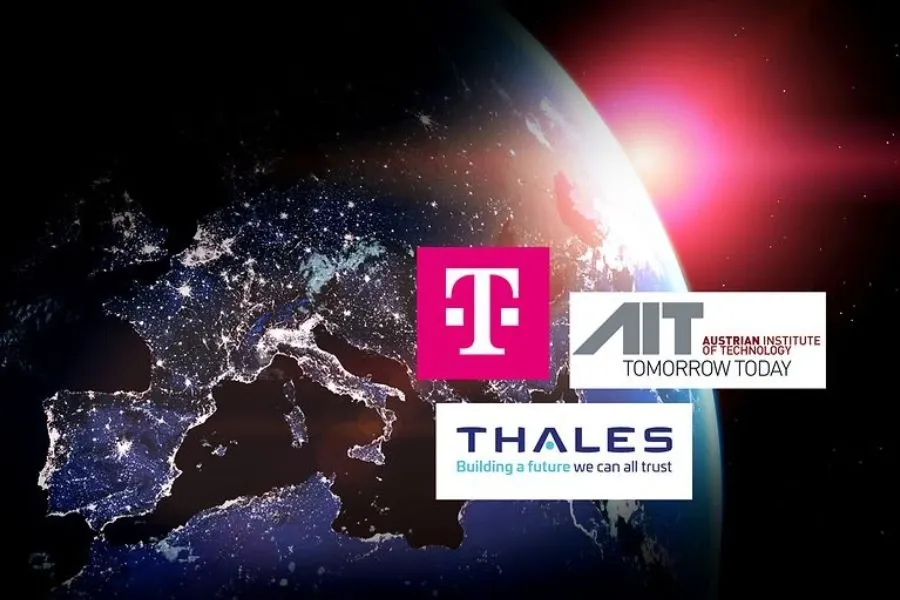Intel Builds the World’s Largest Neuromorphic System
Intel has built the world's largest neuromorphic system code-named Hala Point.

Europe is giving the go-ahead for the next technological leap for secure digitalization. The European Commission has commissioned a consortium named Nostradamus, led by Deutsche Telekom, to build the testing infrastructure for quantum key distribution (QKD). This will enable the evaluation of European manufacturers’ QKD devices.
Partners in the consortium are Thales, the AIT Austrian Institute of Technology, as well as experts from across industry and academia. This paves the way for the implementation of EuroQCI – a highly secure pan-European communication network based on quantum technology. The governments of all EU member states and their citizens stand to benefit from more secure critical infrastructure.
The goal is the development of the European Quantum Communication Infrastructure (EuroQCI). It is intended to provide more security for data centers, communications networks, and critical infrastructure such as hospitals and power plants – via fiber optics and satellite. The use of quantum technology is a key pillar of the EU's strategy for cyber security in the coming decades.
The future encrypted EU satellite network IRIS2 (Infrastructure for Resilience, Interconnectivity and Security by Satellite) also relies on EuroQCI. It is intended to provide governments with communication services and network critical infrastructure. In the future, IRIS2 will also provide companies and organizations with fast satellite internet. After Galileo for navigation and Copernicus for earth observation, IRIS2 is the third pillar of the EU's space infrastructure. The EU gave the green light for IRIS2 last year. The first services are due to be launched this year. Full operation is planned for 2027.
“Nostradamus exemplifies Deutsche Telekom’s commitment to pushing the boundaries of digital security. This collaborative effort not only enhances European cybersecurity but also underscores the importance of strategic partnerships in advancing technological resilience,” explained Daniela Theisinger, Managing Director of Deutsche Telekom Global Business Belgium.
“Thales is particularly proud to contribute to the protection of the EU communications networks and infrastructure. As a leader in advanced technologies, the Group is determined to develop an attack laboratory aimed at responding to quantum threats. This laboratory will identify methods for evaluating ground-based quantum key devices, based on fiber optic technology,” added Joan Mazenc, Head of Thales IT Security Evaluation Facility.
“In addition to the quantum technology know-how at the AIT Austrian Institute of Technology, a high level of expertise is required to test and verify new and innovative products, processes, and tools. This demands a close collaboration between research and industry and a fundamental understanding of quantum encryption and IT security. We are proud to bring together world-leading expertise to pave the way for the market introduction of advanced security products to support Europe's digital sovereignty,” explains Helmut Leopold, Head of the Center for Digital Safety & Security at AIT.
Deutsche Telekom is a digitalization partner for the EU. The company ensured the EU-wide functioning of coronavirus apps during the pandemic. DT was also responsible for the exchange of vaccination certificates for the member states. The company is also a provider of highly secure networks for EU institutions.